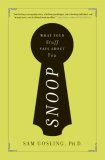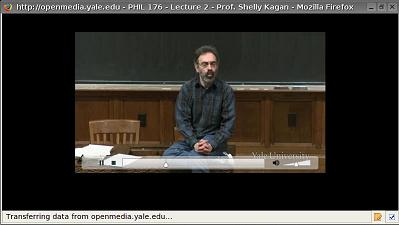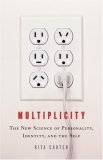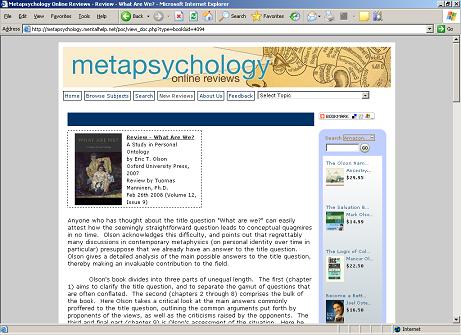May 26, 2008
I saw this at the bookstore today, started reading and was already jotting things down within the first few pages, a sure sign of a good book: 
Snoop: What Your Stuff Says About You by Sam Gosling (Basic Books, 2008)
From the product description:
Does what’s on your desk reveal what’s on your mind? Do those pictures on your walls tell true tales about you? And is your favorite outfit about to give you away? For the last ten years psychologist Sam Gosling has been studying how people project (and protect) their inner selves. By exploring our private worlds (desks, bedrooms, even our clothes and our cars), he shows not only how we showcase our personalities in unexpected—and unplanned—ways, but also how we create personality in the first place, communicate it others, and interpret the world around us. Gosling, one of the field’s most innovative researchers, dispatches teams of scientific snoops to poke around dorm rooms and offices, to see what can be learned about people simply from looking at their stuff. What he has discovered is astonishing: when it comes to the most essential components of our personalities—from friendliness to flexibility—the things we own and the way we arrange them often say more about us than even our most intimate conversations. If you know what to look for, you can figure out how reliable a new boyfriend is by peeking into his medicine cabinet or whether an employee is committed to her job by analyzing her cubicle. Bottom line: The insights we gain can boost our understanding of ourselves and sharpen our perceptions of others. Packed with original research and fascinating stories, Snoop is a captivating guidebook to our not-so-secret lives.
Website for the book
Comments (1)
- new books,psychology,self
April 20, 2008
Open Yale Courses has video lectures posted for seven introductory courses, including a philosophy course on Death given by Prof. Shelly Kagan (shown below) and “Introduction to Psychology” with Prof. Paul Bloom.

Comments (2)
- philosophy of mind,self
March 19, 2008
Multiplicity: The New Science of Personality, Identity, and the Self is a new book by Rita Carter that I picked up at the bookstore recently.
From the book description:
MULTIPLICITY presents an entirely new view of our selves. Instead of seeing each person as a single personality, Carter argues that we all consist of multiple characters, each one with its own viewpoint, emotions and ambitions. The mother who feeds breakfast to her children, for example, has quite different concerns and opinions from the woman taking part in a boardroom discussion two hours later, and from the woman she will be with her husband that night. Yet all three may share the same body, and none is any more “authentic” than another.
Personality changes in a person are conventionally frowned upon, but Carter shows that in today’s world our ability to switch from one personality to another according to what is demanded of us is a huge strength, providing one’s personalities work together as a team rather than against each other. In addition to its groundbreaking scientific thesis, MULTIPLICITY contains extensive exercises designed to help readers achieve this harmony.
Carter’s previous books include Mapping the Mind and Exploring Consciousness.
Comments (0)
- new books,self
February 26, 2008
One of the new reviews at Metapsychology Online Reviews looks at ‘What Are We? A Study in Personal Ontology’ by Eric T. Olson (Oxford University Press, 2007)

Comments (2)
- self
February 21, 2008
I’m (still) reading ‘The Concealed Art of the Soul: Theories of the Self and Practices of Truth in Indian Ethics and Epistemology‘ by Jonardon Ganeri; here is an excerpt from the conclusion of a chapter on Buddhism:
The definitive truth, as extracted from the Buddha’s own words by a Madhyamika hermeneutical procedure, is that concepts purport to represent (but fail actually to do so), that the conventional is the domain in which concepts are treated as if they do represent (although in fact they do not), and that although it is impossible to eliminate the purport unless one ceases altogether to be, it is possible to recognize it for what it is and thereby achieve an attitude of circumspection and cognitive distance. This is neither transcendence nor acquiescence, but an internal exile of the mind. (p. 123)
hermeneutical procedure, is that concepts purport to represent (but fail actually to do so), that the conventional is the domain in which concepts are treated as if they do represent (although in fact they do not), and that although it is impossible to eliminate the purport unless one ceases altogether to be, it is possible to recognize it for what it is and thereby achieve an attitude of circumspection and cognitive distance. This is neither transcendence nor acquiescence, but an internal exile of the mind. (p. 123)
Comments (0)
- self



 hermeneutical procedure, is that concepts purport to represent (but fail actually to do so), that the conventional is the domain in which concepts are treated as if they do represent (although in fact they do not), and that although it is impossible to eliminate the purport unless one ceases altogether to be, it is possible to recognize it for what it is and thereby achieve an attitude of circumspection and cognitive distance. This is neither transcendence nor acquiescence, but an internal exile of the mind. (p. 123)
hermeneutical procedure, is that concepts purport to represent (but fail actually to do so), that the conventional is the domain in which concepts are treated as if they do represent (although in fact they do not), and that although it is impossible to eliminate the purport unless one ceases altogether to be, it is possible to recognize it for what it is and thereby achieve an attitude of circumspection and cognitive distance. This is neither transcendence nor acquiescence, but an internal exile of the mind. (p. 123)

